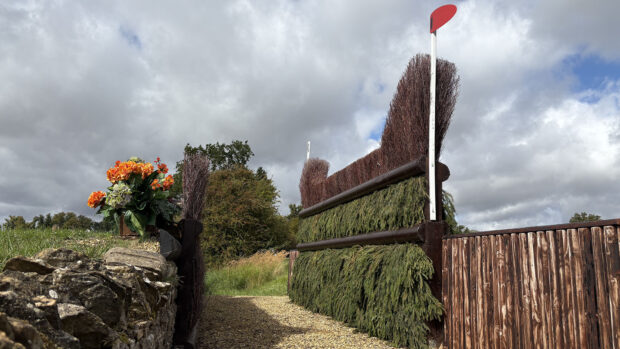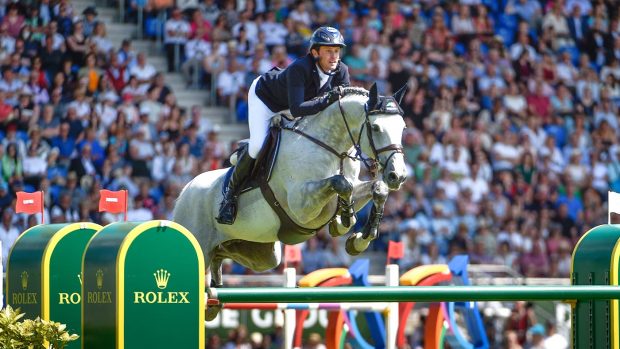Course-designer Derek di Grazia expects the Tokyo Olympics cross-country course optimum time to prove tight when the event riders and horses tackle the track next Sunday (1 August).
The optimum time is 7min 45sec and the US course-designer expects it to be influential “with the terrain and the way the fences come up”.
He would like to see three or four combinations finish clear inside the time, but says the number is difficult to predict.
“Riders are going to have to manage the time efficiently – there are places where they can gallop and make up time,” he says.
Tokyo Olympics cross-country course: keeping the flow
With only a tight area available for the course, Derek had to design a route involving doubling back, but he has taken care that the course is still flowing.
“In a lot of places we’ve used the fences to make the turn, so it doesn’t feel like a turn,” he says.
Derek has also had flow in mind when designing the long routes, which generally take an outer line in the same direction through the combinations.
“Often long routes will wind horses around – we didn’t want to do that with the heat because it makes horses more tired,” he said. “The long routes take more time, removing the intensity and giving more space and time for the riders to prepare for the fences, but they keep the horses going.”
Derek expects the long routes to be well used.
“With three to a team and all to count, it depends on strategy for the team – where they want to play it safe. Each team will have their own plan,” he said.
“But time will be quite a factor, so for the teams that have a crack at the medals, they’ll be looking at the straight routes first. But it could change through the day depending on how their first riders get on.”
Creating the course
Derek was appointed as Tokyo Olympics cross-country course-designer in 2016 and has visited Tokyo 16 times over the past five years.
Sea Forest is reclaimed land and was a virgin site in terms of never having hosted cross-country before the 2019 test event.
“One of the challenges is that we couldn’t dig down – everything had to be built up,” he says. “We also relocated thousands of trees.”
Two of the ponds which now host water fences (fences 5abc, 8abcd, 9abc and 11abc) already existed, while the final water (fence 20abcd) was created specially.
Derek paid tribute to British course-builder David Evans and his assistants, who have done “an amazing job”, as well as the rest of the team who have been involved.
“I’m happy with the result and what we have,” he says.
The initial plan was to have a 10-minute cross-country course, which could have involved up to 42 jumping efforts. But after the 2019 test event, it was recommended the course was shortened with horse welfare in mind in the hot and humid conditions.
“When I designed the course, I made three ways we could shorten it, and that’s what happened,” says Derek.
The course now has 36 jumping efforts if a rider takes all the direct routes.
The “loamy mix” subsoil that was used on the course was chosen bearing in mind it can rain heavily in Japan at this time of year.
“Hopefully it’ll hold up well if it does rain,” said Derek, adding that the extra year has helped the footing to bed in.
He also said that Sea Forest is considerably less open than it would have been in 2020, with more trees and undergrowth.
You might also be interested in:

Walk the Tokyo Olympics cross-country course: photos of every fence

Five things you need to know about the Tokyo Olympics cross-country course

The eventers are in town! Check out the British team and others during arena familiarisation in Tokyo

How to watch Olympic eventing live

Subscribe to Horse & Hound magazine today – and enjoy unlimited website access all year round
Horse & Hound magazine, out every Thursday, is packed with all the latest news and reports, as well as interviews, specials, nostalgia, vet and training advice. Find how you can enjoy the magazine delivered to your door every week, plus options to upgrade your subscription to access our online service that brings you breaking news and reports as well as other benefits.




